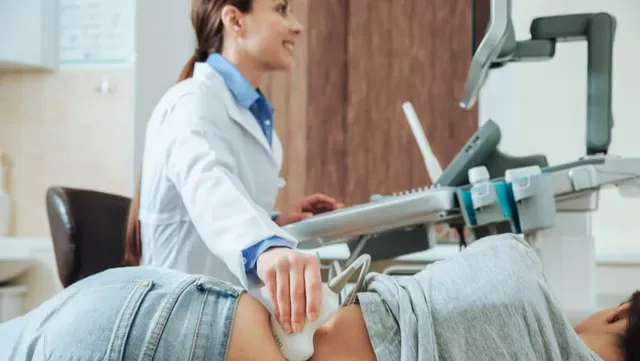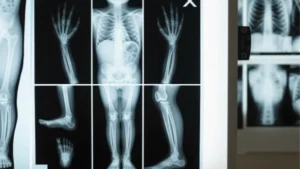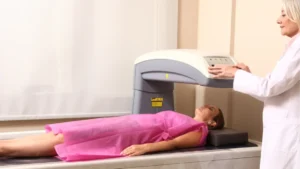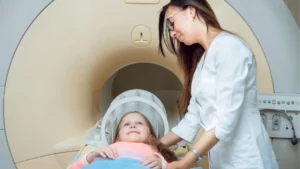You can have your kidneys examined using ultrasound imaging to search for inflammation, malignancy, and renal failure symptoms. This post explains what a kidney ultrasound is, what it may discover, and what you need to do before and after the treatment.
You can have your kidneys examined using ultrasound imaging to search for inflammation, malignancy, and renal failure symptoms.
This post explains what a kidney ultrasound is, what it may discover, and what you need to do before and after the treatment.
What Is An Ultrasound Of The Kidney?
An ultrasound of the kidneys is a non-invasive method of obtaining pictures on the right and left. Ultrasound technology is a test that uses sound. In contrast to X-rays, it does not involve the use of radiation. Instead, it makes use of sound waves invisible to the human ear.
When high-frequency sound waves reverberate off your organs, they create images of your kidneys. Your doctor uses these images to assess your kidneys’ size, shape, position, and even blood flow.
When getting a kidney ultrasound, kids, pregnant women, and persons with dye allergies don’t have to worry about radiation or contrast dye exposure.

What Are The Reasons For A Kidney Ultrasound?
It may be necessary to undergo renal ultrasonography for the following reasons:
- Examine the kidneys, ureters, and bladder to determine their size, position, and form.
- Check for kidney cysts, tumors, abscesses, blockages, fluid accumulation, and infection.
- Check for renal and ureteral calculi or kidney stones
- Aid in needle insertion to acquire tissue samples from the kidneys, cyst drainage, or tube implantation
- Identify renal artery and vein blood flow to the kidneys.
- Examine a kidney that has been transplanted
Your doctor may have additional reasons for ordering a renal ultrasound.
What Are The Risks Of A Kidney Ultrasound?
Ultrasounds of the kidneys are virtually risk-free procedures. As an alternative to X-rays, which employ radiation to create pictures, ultrasounds make images using sound waves instead.
Ultrasounds of the kidneys may be less effective if the patient is obese or has abdominal gas.
How Do I Prepare For A Kidney Ultrasound?

Before your ultrasound, your healthcare professional will present you with detailed instructions and respond to questions you may have. You may be required to:
- Drink at least 24 ounces of water
- keep your bladder in check
- Change into a hospital gown or wear something more casual.
If you need to go to the restroom before the ultrasound, you may need to keep drinking water to keep your bladder full while you wait.
To facilitate the transmission of sound waves, the experts will apply gel to your skin. The gel will leave an oozy mess on your clothes, no matter how careful you are.
Other things to expect are as follows:
- Your doctor may advise you to make specific dietary changes ahead of time.
- Leave your jewelry and other valuables at home.
- You’re most likely not to be put to sleep as ultrasounds don’t often need sedation.
- Most ultrasounds usually take at least 30 minutes.
If your doctor or other medical professional gives you any additional instructions, be sure you follow them.
What Happens On The Day Of My Kidney Ultrasound?
You can eat and normally drink on the day of your ultrasound unless your doctor specifically instructs you to do differently before the procedure.
An hour before the exam, you’ll need to drink 30 ounces of water, and you won’t be able to go to the bathroom until you’re done.
Registered, properly trained technologists and board-certified radiologists will perform your ultrasound test.

What Happens During The Kidney Ultrasound?
Ultrasounds of the kidneys can be conducted in a hospital or a clinic environment. The following are the steps that must be followed:
- To get ready for the surgery, take off all your clothing and valuables. You will be given a hospital gown to change into.
- In the examination area, you’ll be lying on your stomach with your legs straight out in front of you.
- The transducer will be attached to the skin with a gel. This material enhances the transducer-to-skin contact and hence the propagation of sound waves into the body.
- Sound waves are sent into the body via the transducer. A picture of the kidney and other internal components may be created by capturing these waves and analyzing the data they offer.
- For future reference, the ultrasound pictures will be saved in digital form.
Your radiologist may take pictures of your bladder both before and after you urinate so that they get a complete picture of how it functions.
Because of the intimate association between the kidneys and the bladder, this information will be helpful to your doctor when interpreting the ultrasound results.
What Happens After The Kidney Ultrasound?
After the test is completed, your IV is removed, and you are free to leave. You may be instructed to drink a lot of fluids over the next 24 hours by your healthcare team. The tracer will be flushed out of your system if you often empty your bladder.
Let your doctor know if you notice any redness, discomfort, or swelling at the location of your IV catheter. Infection or a response to the tracer might be at blame.

Getting Your Results
A specialized doctor will review the findings of your scan within a few weeks. There are no immediate findings from the scan.
Anxiety can be a common side effect of awaiting test results. Find out how long it will take to acquire them from your doctor or nurse. Waiting more than two weeks without hearing back from them is cause for concern.
Should you have any questions, do not hesitate to contact One-Step-Diagnostic. Our team of healthcare professionals will be happy to provide you with medical advice.




